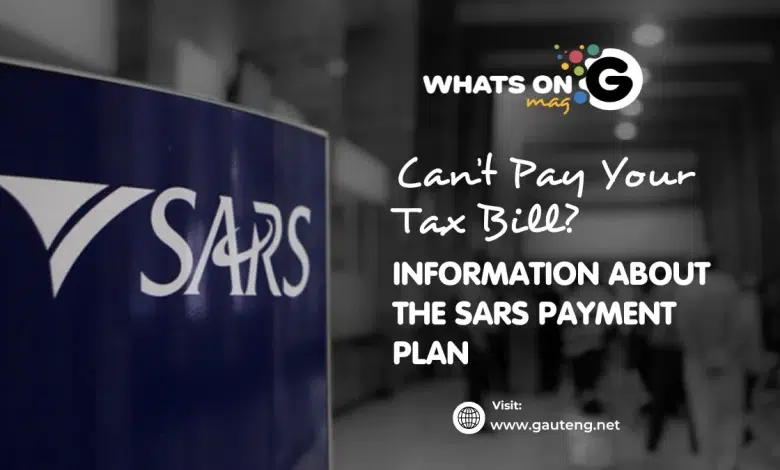Can’t Pay Your Tax Bill? Information About The SARS Payment Plan

If you owe money to the South African Revenue Service (SARS) but cannot pay the full amount immediately, SARS offers a payment plan option to help you manage your tax debt. This article explains how the SARS payment plan works, who qualifies, and how to apply.

ALSO READ: Can You Negotiate With SARS? What to Do If You Can’t Pay Your Tax Bill
What Is the SARS Payment Plan?
The SARS payment plan, also known as a deferment of payment arrangement or instalment payment arrangement, allows taxpayers to pay outstanding tax debts over time. Instead of settling the full amount in one lump sum, you can pay in instalments until the debt, including applicable interest, is fully paid.
This arrangement helps taxpayers who are experiencing temporary financial difficulties but expect to have sufficient funds in the future to clear their tax obligations.
Who Qualifies for a Payment Plan?
SARS will consider entering into a payment plan only if certain conditions are met:
- You currently lack sufficient assets or liquidity but expect this to improve.
- You anticipate future income or receipts that can cover the tax debt.
- Immediate collection by SARS is unlikely or would be uneconomical.
- Collection action would be harsh in your particular case.
- You can provide any security SARS may require.
- All outstanding tax returns and reconciliations have been submitted.
If you have defaulted on previous payment arrangements, SARS requires reasonable and valid reasons before considering a new deferment request.
How to Apply for a SARS Payment Plan
You can request a payment plan through several channels:
- SARS eFiling: Log in to your account and follow the steps to apply for a payment arrangement once the debt is outstanding.
- SARS Contact Centre: Call 0800 00 7277 (within South Africa) between 09:00 and 16:30. International callers may dial +27 11 602 2093.
Make sure all your outstanding tax returns are submitted before applying, as SARS will not consider payment plans if non-compliance remains.
Important Tips for Taxpayers
- The payment plan must cover the entire outstanding debt, including interest.
- SARS charges interest on outstanding amounts; as of March 2025, the interest rate on unpaid taxes is 11.25% per annum.
- Keep communication open with SARS and respond promptly to any requests to avoid defaulting on the arrangement.
- If you default on a payment plan, SARS may take collection action or refuse future arrangements unless valid reasons are provided.
Payment Methods for Settling Tax Debt
Once a payment plan is agreed upon, you can make payments through various methods:
- Bank Payments: Payments can be made at major banks such as Absa, FNB, Nedbank, Standard Bank, and Capitec. Always use the correct beneficiary ID and payment reference number.
- eFiling Credit Push: Authorise payments directly from your bank account via SARS eFiling.
- SARS MobiApp: Pay via your Statement of Account or Notice of Assessment.
- Electronic Funds Transfer (EFT): Use internet banking with the correct SARS beneficiary ID.
- Cash Payments: Limited to Customs ports of entry and exit for travellers; not generally available for other taxpayers.
What Happens If You Can’t Pay and Don’t Arrange a Payment Plan?
Failing to pay SARS without arranging a payment plan may result in:
- Penalties and interest accumulating on your debt.
- SARS initiating collection actions, including garnishing wages or seizing assets.
- Negative impact on your credit record and financial reputation.
RELEVANT ARTICLE: Owe SARS Money? Here’s What Happens If You Don’t Pay by the Deadline
Convenient Compliance
If you cannot pay your SARS tax bill in full, the payment plan option provides a structured way to manage your debt responsibly. Ensure you meet the qualifying criteria, submit all outstanding returns, and communicate clearly with SARS. Using the available digital channels makes applying for and managing your payment plan easier and more efficient.



